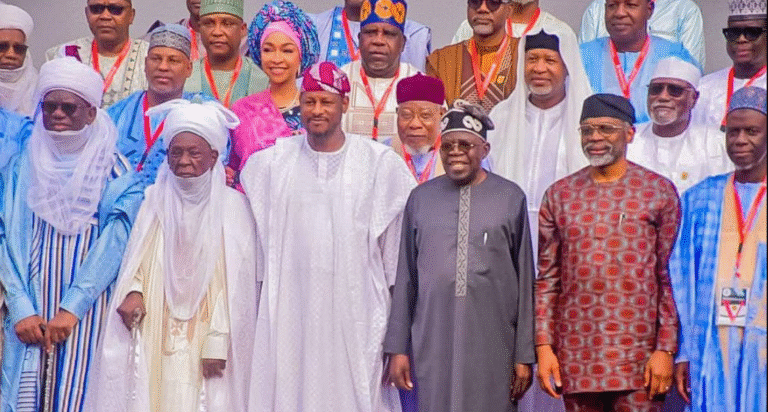By Peter Omopo
September 5, 2025
By Stephen Angbulu, Gift Habib, Nathan Shaibu, Ademola Adegbite, Salisu Kabuga, James Abraham, Dennis Naku and Godwin Isenyo
Calls for the creation of state police have intensified across Nigeria, with regional leaders, civil society groups, and security experts urging President Bola Tinubu’s administration to fast-track the long-delayed reform.
The renewed demand follows the President’s meeting with a delegation from Katsina State, led by Governor Dikko Radda, on Tuesday, where Tinubu reaffirmed his commitment to devolving policing powers to sub-national governments.
“I am reviewing all aspects of security; I have to create a state police,” Tinubu told the delegation, promising to accelerate reforms and further equip recently deployed forest guards.
Rising Calls Amid Escalating Violence
Since Tinubu’s first pledge in early 2024, the process has stalled despite worsening insecurity. According to the National Human Rights Commission, at least 2,266 Nigerians were killed in the first half of 2025—double the toll recorded during the same period last year.
Recent attacks, including the killing of at least 50 worshippers in a Katsina mosque and mass kidnappings in the northwest, have heightened public pressure on the government.
Afenifere, PANDEF Back Tinubu
The pan-Yoruba socio-political group Afenifere welcomed Tinubu’s renewed commitment but urged him to clear delays before the end of 2025.
National Publicity Secretary Jare Ajayi said, “The idea of state police has been on the front burner for quite a while. For Tinubu to again openly describe it as inevitable means the Federal Government is ready to have it take off.”
Afenifere leader Olu Falae described the reform as “long overdue,” while the Pan Niger Delta Forum (PANDEF) argued that devolution of policing is essential for tackling rising crime.
“Vigilante groups already exist across communities, working with governors and traditional rulers. What we are advocating is legalisation,” PANDEF spokesperson Obiuwevbi Ominimini said.
Middle Belt, Northern Voices Join In
The Middle Belt Forum also backed the reform, with its President, Dr. Bitrus Pogu, recalling that Nigeria once had native authority police before military rule abolished them.
“We pretend state police will be abused by governors, as though the Federal Government is free from abuses. It is long overdue,” he said.
From the north, the Jigawa Next Forum and youth activists accused both federal and state leaders of lacking urgency.
“Our people are losing lives every day. The delay undermines peace,” forum leader Habu Isa said, urging Arewa groups to pressure the government.
Divergent Views
While several groups argue decentralisation would improve local security responses, critics warn of political misuse.
The Northern Youth Council of Nigeria (NYCN) dismissed the idea as a “misplaced priority,” saying existing institutions should be reformed instead.
“Creating state police is simply a waste of time. What we need is a stronger, better-funded Nigeria Police Force,” NYCN President Isah Abubakar argued, calling for a five-million-strong federal police force to meet Nigeria’s needs.
Similarly, the Movement for the Survival of the Ogoni People (MOSOP) said economic hardship, not the lack of state police, is driving insecurity.
“As much as we have insecurity, state police are not the solution. The government must address economic policies creating hardship,” MOSOP spokesperson Oscar Imeabe said.
Government’s Position
Information Minister Mohammed Idris assured Nigerians that Tinubu remains committed to establishing state police but stressed that the reform requires constitutional amendments and cooperation with the National Assembly.
“The President is deeply concerned about the security situation. The state police plan underscores his commitment to a multi-pronged approach,” Idris said.
Despite widespread agreement among governors—confirmed by Kaduna’s Uba Sani—the National Economic Council (NEC) has deferred discussions multiple times, with a final decision now expected in January 2026.
As debates persist, security experts warn that continued delays could worsen Nigeria’s fragile security architecture, leaving local communities exposed.

